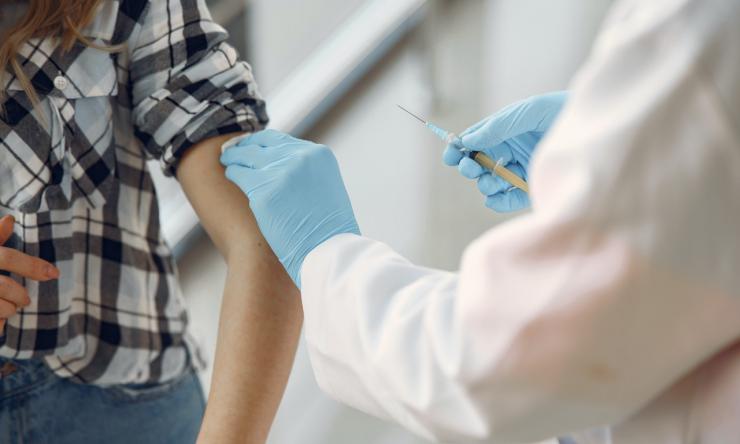Clinical trial begins evaluating second COVID-19 booster in adults
Note: Adults interested in joining this study should visit clinicaltrials.gov and search identifier NCT05289037 for a list of sites and contacts. Those interested in participating at the Baylor College of Medicine Vaccine and Treatment Evaluation Unit should email COVID-VAX@bcm.edu or call 713-798-4912.
A Phase 2 clinical trial evaluating various additional COVID-19 booster shots has begun enrolling adult participants in the United States. The trial aims to understand if different vaccine regimens—prototype and variant vaccines alone and in combinations—can broaden immune responses in adults who already have received a primary vaccination series and a first booster shot. The study, known as the COVID-19 Variant Immunologic Landscape (COVAIL) trial, is sponsored by the National Institute of Allergy and Infectious Diseases (NIAID), part of the National Institutes of Health. Baylor College of Medicine has received funding support as an agreement under NIH contract number 75N91019D00024 to Leidos Biomedical Research in Frederick, Md.
Despite waning protection against infection and mild illness during the omicron wave, COVID-19 vaccines available in the United States so far have maintained durable protection against severe COVID-19. However, NIAID is preparing for the possibility of future variants evading protection against currently available COVID-19 vaccines.
COVID-19 vaccine manufacturers can adjust prototype vaccines to target specific variants, a process similar to how manufacturers update seasonal influenza vaccines every year to target circulating strains. However, predicting if, when and where new COVID-19 variants will emerge and how they will affect the population, remains challenging. Studies indicate that omicron has a combination of mutations that make it substantially different from prior SARS-CoV-2 variants. Should a new variant emerge that more closely resembles ancestral SARS-CoV-2 or, like the delta variant did, an omicron-specific vaccine may not offer substantial protection. An individual’s response to booster shots also may be impacted by their history of prior infection and vaccination, or both, and what type of COVID-19 vaccines they received.
Vaccine manufacturers have previously studied some variant vaccine candidates and are currently conducting clinical trials of omicron-specific vaccines. The COVAIL trial will gather data on the immune responses induced by prototype vaccines and variant vaccine candidates—including bivalent vaccines, which target two SARS-CoV-2 variants—to inform booster shot recommendations.
Dr. Nadine Rouphael, director of the Hope Clinic at the Emory Vaccine Center in Atlanta, and Dr. Angela Branche, assistant professor of medicine at the University of Rochester Medical Center in New York, are leading the trial. Site investigators at 24 clinics are enrolling 600 participants 18 years and older who already have received a primary COVID-19 vaccination series and booster shot. Dr. Jennifer Whitaker, assistant professor of molecular virology and microbiology and medicine - infectious diseases at Baylor College of Medicine, is leading the trial at Baylor’s Vaccine and Treatment Evaluation Unit site. Participants are randomly assigned to one of six vaccine regimens:
- One 50-microgram (mcg) injection of the mRNA-1273 (Spikevax) prototype vaccine, which is the same vaccine currently authorized in the United States as a booster shot for adults;
- One 50-mcg injection consisting of mRNA-1273.351 (an investigational vaccine targeting the Beta variant) and mRNA-1273.529 (an investigational vaccine targeting the Omicron variant);
- Two vaccinations administered two months apart: each vaccination is one 50-mcg injection containing both mRNA-1273.351 and mRNA-1273.529;
- One 50-mcg injection consisting of mRNA-1273.617.2 (an investigational vaccine targeting the Delta variant) and mRNA-1273.529;
- One 50-mcg injection of mRNA-1273.529; and
- One 50-mcg injection consisting of mRNA-1273 (Spikevax) and mRNA-1273.529.
The study vaccines included in this first stage of the trial are manufactured by Moderna, Inc., based in Cambridge, Mass. The trial will be adapted to enroll more participants to evaluate additional vaccine platforms and variant vaccines from other manufacturers as needed to further inform public health decisions. Participants will be monitored for symptoms and adverse events following vaccination and will be asked to return to the clinic during set times over the course of 12-14 months to provide blood samples. Investigators will evaluate the samples in the laboratory to measure and characterize immune responses to SARS-CoV-2 strains. Investigators aim to have initial findings available by August 2022.
The study is being conducted in collaboration with academic medical centers across the U.S., NIAID’s Infectious Diseases Clinical Research Consortium and the NIAID SARS-CoV-2 Assessment of Viral Evolution (SAVE) Program. For more information about the trial, including specific site locations and for details on how to participate, please visit clinicaltrials.gov and search identifier NCT05289037.
NIAID conducts and supports research—at NIH, throughout the United States and worldwide—to study the causes of infectious and immune-mediated diseases and to develop better means of preventing, diagnosing and treating these illnesses. News releases, fact sheets and other NIAID-related materials are available on the NIAID website.










